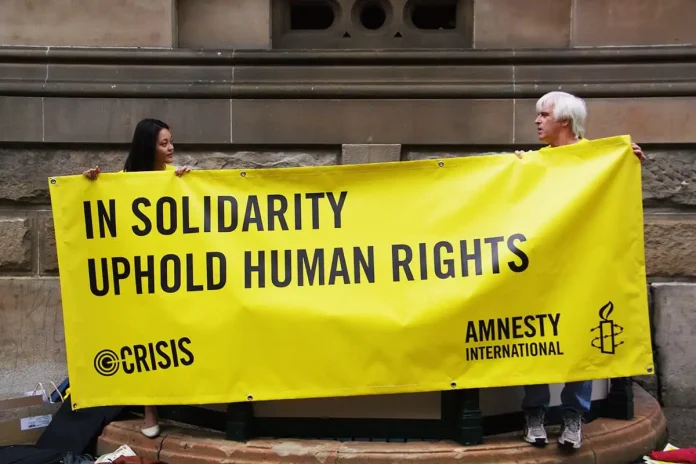Eve Geddie, head of Amnesty International’s Brussels office, stated that the Asylum and Migration Pact adopted by the European Parliament on April 10 “weaken the right to asylum” and enshrine in law an ineffective approach to migration policy, according to Euractiv.
The pact, a set of nine interdependent files, is the result of almost 10 years of debate and negotiation at EU level. It simplifies asylum procedures, strengthens border security and creates a new “solidarity” mechanism between member states.
Geddie argued that the pact provided an opportunity to take a more people-centred approach to EU migration policy, “but what we have instead is a set of policies that are really going to increase people’s suffering at every step of their [migration] journey.”
Ultimately, it’s going to weaken the right to asylum.
She was concerned about some of the pact’s provisions, including a new “solidarity” mechanism that would allow frontline EU countries experiencing “migratory pressure” to request the resettlement of migrants in other bloc members. Otherwise, the latter would be obliged to provide first-arrival countries with additional money, material aid such as surveillance tools, and personnel.
“This means member states can opt out of their right to uphold asylum. We’ve created a legal fiction of non-entry.”
Geddie warned that this would only encourage border countries to resort to violent methods to keep asylum seekers at bay. This, according to Geddie, means that border detention centres are closed to NGOs and journalists, and displaced people reaching EU borders “are being pushed back violently into the forest, and even dying in subzero temperatures.”
In her view, the Asylum and Migration Pact reinforces this practice – although data shows that such policies have so far had little effect on reducing the number of asylum seekers coming to the EU. According to the EU Agency for Asylum, 1.1 million asylum applications were made in 2023, up 17 per cent from a year earlier.
The migration debate at the EU and national levels is dominated by a security, border-control, and policing narrative. But if you look at the local level, you see far more progressive policy-making, and community-based solutions.
The EU is seeking more bilateral agreements with third countries such as Tunisia and Libya to send people who cannot claim asylum back, or prevent them from entering Europe at all, for lump sum cash payments.
Geddie fears these payments may have contributed to crimes against humanity committed there, according to a UN fact-finding mission. She also fears the EU’s willingness to make deals with dubious political leaders who might use displaced people as bargaining chips to boost EU investments.
“The Commission and member states have decided they must act so strongly against [migrant] instrumentalisation – but actually put themselves at risk of being instrumentalised themselves.”
